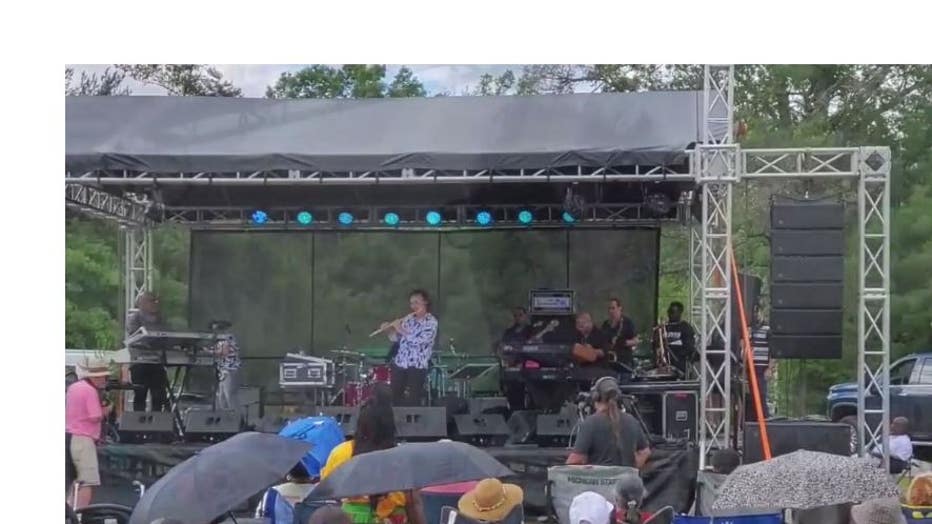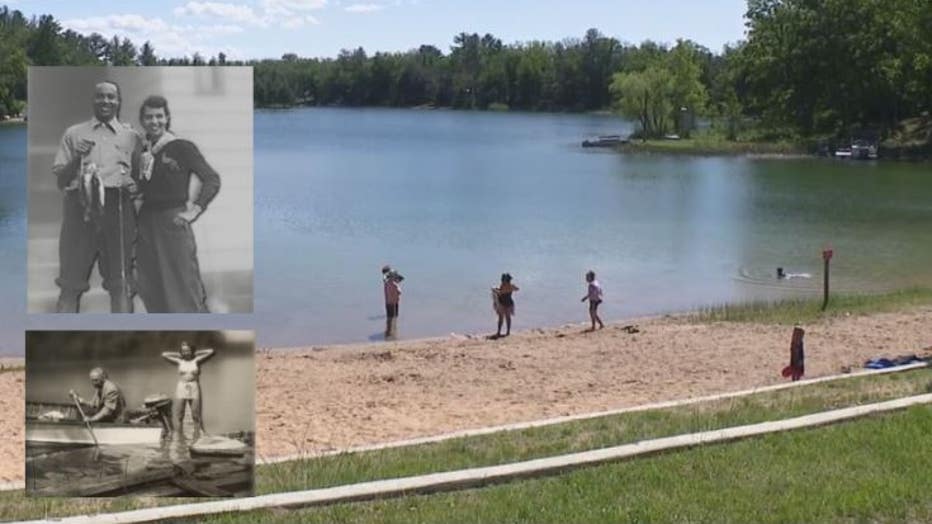Idlewild, the 'Black Eden' of northern Michigan, begins paving its comeback

Idlewild, the 'Black Eden' of northern Michigan, ramps up to be rediscovered
Sometimes called Black Eden, it was a cultural and entertainment outlet for Black Americans before the Civil Rights Act of 1964. At the time, it was one of the only resorts open to minorities.
IDLEWILD, Mich. (FOX 2) - Nuzzled up north off of M-10 and located on the edge of the Manistee National Forest sits the sleepy little town of Idlewild.
But long ago before it became in afterthought for those traversing up north through Michigan, Idlewild was a popular resort town that boated as many as 20,000 visitors on a summer weekend. But its legacy doesn't lie in recreation, but as a safe haven for African Americans from all over the country.
Sometimes called Black Eden, it was a cultural and entertainment outlet for Black Americans before the Civil Rights Act of 1964. At the time, it was one of the only resorts open to minorities.
"It was a place where you could genuinely and unapologetically be Black," said Blair Evans.
Evans characterized the community as one that enabled any visitor to strive for whatever it might mean to be Black "without worrying about somebody telling you what your limits were."

Evans' family started visiting Idlewild in the 1920s before eventually putting their roots down.
"A safe space. Physically, culturally, emotionally - that extremely important for people," said Evans.
Just like the rest of northern Michigan, Idlewild shined brightest in the summers. The warmer months offered swimming, boating, and fishing. And after the sun set, nights would be spent at the Paradise or Flamingo Club, which brought in big name acts like Sarah Vaughn or Jackie Wilson.
From 1912 to the 1960s, everyone who was anyone in the Black community wanted to be in Idlewild.
When discrimination was outlawed in the 1960s and other resorts opened up to minorities, life slowed down in Idlewild. The clubs that hosted world-renowned entertainment closed soon after.
Since then, life has continued in the unincorporated community - though at a slower pace. A small group of residents maintain the community with land and deeds staying in the family. They even preserved the only motel in town.

But that was then - and now, residents are ready to reintroduce Idlewild to the world.
"I see that we do have the ability for an Idlewild 2.0 to provide for the next 50 or 75 years what it had provided to the previous generation," Evans said. "To not just be a place that people could appreciate what used to be, but a place where people can discover what could be."
And how will Evans and the rest of the community do that? By turning a large vacant lot into a concert venue, complete with tours and interactive displays that showcase the unique community.
"I had never been to Idlewild before and I came up here about 22 years ago and fell in love with the place. I tell you there's no place like Idlewild. The peace, the quiet, the tranquility," said Rev. Deborah Elliot of Tabernacle AME Church. "Just being in the woods and being close to God and nature."
Alexander Zonjic, an internationally-known musician, was one of the artists to stop by the community and perform.

"What there is here that is not at a lot of other events is history. How could a cultural event in Idlewild not be a good idea. I mean come on," he said.
Evans describes it as an educational experience.
"You can't have revolution without culture," he said.
There are already plans to make the jazz festival that came through an annual event. It's one of many building blocks residents are using to teach, recruit, and preserve their rich history.
Learn more about upcoming events here.


